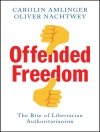In this wide-ranging work, now available in paperback, Habermas
presents his views on the nature of the social sciences and their
distinctive methodology and concerns. He examines, among other
things, the traditional division between the natural sciences and
the social sciences; the characteristics of social action and the
implications of theories of language for social enquiry; and the
nature, tasks and limitations of hermeneutics. Habermas’ analysis
of these and other themes is, as always, rigorous, perceptive and
constructive.
This brilliant study succeeds in highlighting the distinctive
characteristics of the social sciences and in outlining the nature
of, and prospects for, critical theory today.
Daftar Isi
Introduction.
Translator’s Note. Preface.
Part I. The Dualism of the Natural and Cultural
Sciences:.
1. A Historical Reconstruction.
2. Sociology and History: The Contemporary Discussion.
Part II. On the Methodology of General Theories of Social
Action:.
3. Normative-Analytic and Empirical-Analytic Approaches to
Social Science.
4. Intentional Action and Stimulus-Response Behaviour.
5. Three Forms of Functionalism.
Part III. On the Problem of Understanding Meaning in the
Empirical-Analytic Sciences of Action:.
6. The Phenomenological Approach.
7. The Linguistic Approach.
8. The Hermeneutic Approach.
Part IV. Sociology as Theory of the Present:.
9. The Limits of Linguistically Oriented Interpretive
Sociology.
10. Open Questions.
Notes.
Index.
Tentang Penulis
Jürgen Habermas is the author of numerous books
including The Philosophical Discourse of Modernity (Polity
1988) and The Theory of Communicative Action (Polity, 1988).












